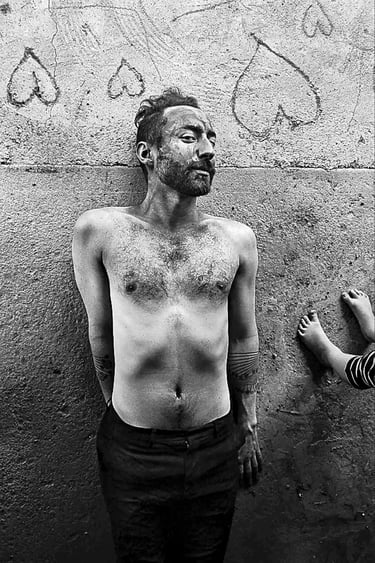Flin Flon Has Changed, Escapee Finds
🗓️ Originally published in The Reminder – Sept 26, 2013
By: Jonathon Naylor Posted: 1:00 AM CDT Thursday, Sep. 26, 2013
C.C. Trubiak would have a hard time convincing fans that one of his most powerful songs, “Prairie Boy,” is anything but autobiographical.
A Painful Past
Growing up as a gay youth in a small northern town wasn’t easy. Trubiak recalls relentless bullying that pushed him to his emotional limits. By the summer between Grades 7 and 8, he had made up his mind to leave—for good.
“I did not want to die,” he says. “I wanted to live, but without the threat or violence. I carried shame for something I couldn’t change—my sexual orientation.”
That summer, Trubiak attempted to take his own life. Thankfully, fate and family intervened. What followed was a long and healing journey, supported by guidance counsellors, social workers, and a growing inner resilience.
Finding Solace in Music
Through it all, music became Trubiak’s refuge. A born performer—he was reportedly singing before he could walk—he retreated to his bedroom sanctuary, writing lyrics, singing endlessly, and listening to records that gave him hope.
“I saw musicians as teachers,” he says. “They voiced who they were through lyrics and song.”
It was clear early on: music would always be his safe space, and eventually, his platform.
From Escape to Return
After finishing high school in 1997, Trubiak left Flin Flon behind. He moved from Prince Albert to Winnipeg, and then to Ottawa. With each move, he grew more comfortable in his own skin.
In Ottawa, he finally stepped into the spotlight—playing open mics, building a fanbase, and releasing original music.
At the same time, he pursued another calling: social work. He studied at Carleton University, graduating in 2010 with a vision of helping others find the same healing he had.
Full Circle
Then came the unexpected call: a job opening in Flin Flon. Emotionally torn, Trubiak almost turned it down. But eventually, he accepted, promising himself he’d stay just a year.
To his surprise, the Flin Flon he returned to was very different. The town had grown, evolved. There was a newfound openness. People were living authentically—out and proud. The music scene was thriving.
Trubiak quickly became a staple in the local arts community, performing at festivals like Flonstock and reconnecting with his hometown in a meaningful new way.
Rewriting the Narrative
Between counseling clients and performing on stage, he recorded a follow-up album to They Say I’m Different. The result: Tiny Army: The D. Holmes Sessions—a project soon to be available on iTunes.
Now a respected voice both musically and socially, Trubiak is living proof of personal transformation. He continues to wonder what a life dedicated full-time to music might look like—not to leave counseling behind, but to change lives through songs just as much as through conversations.
“Everyone’s searching for something I believe they already have within,” he says.
“Resilience.”
Originally published by Jonathon Naylor
Editor, The Reminder – Flin Flon
📩 jonathon_naylor@hotmail.com

